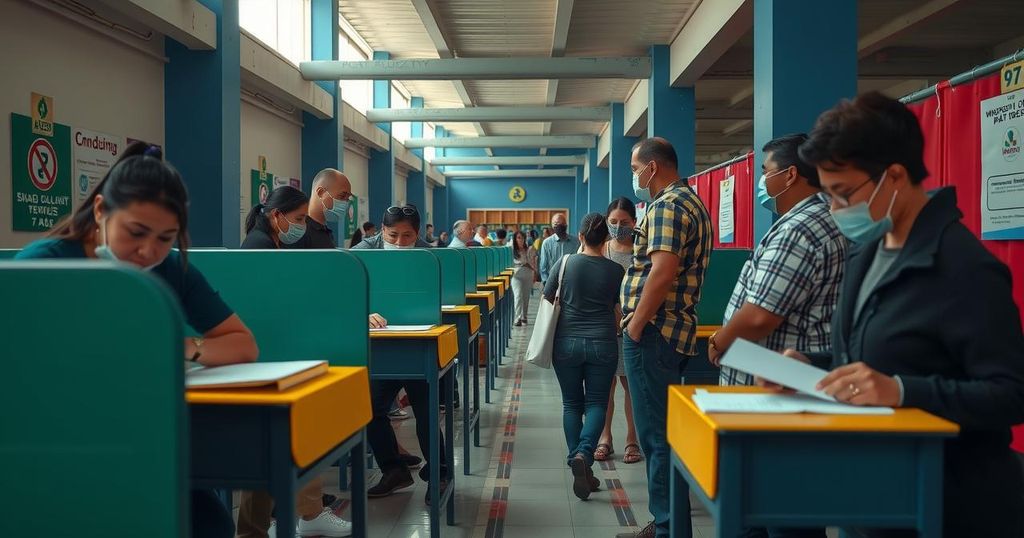Uruguay Prepares for Presidential Runoff in Competitive Election

Uruguay is set for a close presidential runoff on November 24, featuring center-left candidate Yamandu Orsi against conservative Alvaro Delgado. Opinion polls predict a tight race with fewer than 25,000 votes likely separating the candidates. Orsi seeks to maintain moderate policies while Delgado calls for the retention of the current governance amidst a robust economy.
In Montevideo, Uruguay, voters are preparing to participate in a closely contested presidential runoff on November 24. The race features opposition center-left candidate Yamandu Orsi, who previously garnered 43.9% support in the initial round, and continuity conservative candidate Alvaro Delgado, who received 26.8%. With final opinion polls indicating that fewer than 25,000 votes may separate the candidates, the election highlights Uruguay’s relatively peaceful political climate, distinct from the polarized environments seen in neighboring nations.
Polling stations will operate from 8 a.m. to 7:30 p.m. local time, with initial results anticipated shortly after polling concludes. Orsi aims to articulate a “modern left” agenda while reassuring citizens of his commitment to moderate policies. Conversely, Delgado emphasizes the desirability of continuing the current government as President Lacalle Pou steps down due to term limits.
Both candidates are vying for approximately 8% of the first-round voters who supported minor parties, alongside those who abstained. However, neither has introduced significant new proposals to capture this demographic, despite engaging in a televised debate purported to have little influence on public opinion. Rosario Gusque, a voter from Canelones, expressed uncertainty regarding her choice, highlighting the election’s competitive nature.
The outcome of this election holds implications regarding the broader trends affecting incumbent parties globally, particularly in the face of economic challenges stemming from inflation. Nevertheless, the strength of Uruguay’s economy may favor Delgado, as analysts note limited public demand for substantial political changes at this juncture.
Uruguay’s electoral landscape, particularly in the context of the upcoming presidential runoff, reflects a marked contrast with other South American nations, characterized by less polarized political factions. The election occurs following a year of significant political activity across the region, positioning the candidates, Orsi and Delgado, to appeal to voters amid economic concerns. The runoff underscores the unique dynamics of Uruguayan politics, where coalition collaboration mitigates extreme partisan divides and allows for competitive yet civil electoral processes.
In conclusion, the presidential runoff in Uruguay between Yamandu Orsi and Alvaro Delgado represents a critical moment in the country’s political landscape, highlighting a tightly contested election primarily influenced by moderate policies and the quest for voter support from non-aligned parties. The outcome may reflect broader trends in voter behavior, indicating potential shifts away from traditional incumbent support globally, though Uruguay’s economic resilience could prove advantageous for Delgado.
Original Source: www.arabnews.com






